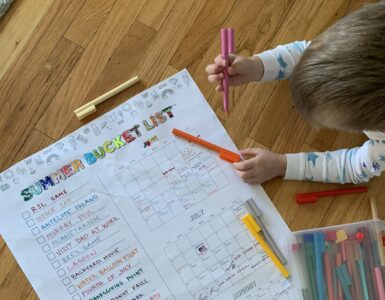Amanda Grow, founder of College Fast Lane, shares strategies to help your student score higher on the ACT exam.
HELP YOUR STUDENT UNDERSTAND THAT THERE IS NO HOMEWORK MORE IMPORTANT THAN ACT PREP
Because the ACT is the only standardized part of the college application package, many colleges weight it heavily when awarding admissions and scholarships.
There is no immediate grade involved with ACT preparation so many students put low on their homework priority list. However, the scores that come back are far more important than any individual grade on a student’s transcript. A few points could make a huge difference in admission possibilities and could earn a student thousands of dollars more in scholarships.
The ACT is designed to be an achievement test (vs. the SAT, which is an aptitude test) and it is very possible to study and do better on this particular standardized test.
As a parent, you can provide encouragement or even incentives to encourage your student to study for this test. I had one parent offer her daughter $1,000 if she could improve her score from a 26 to a 30. Money was a serious motivator for this student and with a lot of hard work, she eventually scored a 31. This wise mother will make back her $1,000 many times over in the scholarships her daughter will receive!
HELP YOUR STUDENT IDENTIFY HIS/HER ACT STRENGTHS
Good students have been trained to start at the beginning of a test and work to the end. On the ACT, this is often a poor strategy due to serious time restrictions. Most students are unable to finish the test in the allotted time and must learn to spend their time on the questions they are most likely to get right.
On the ACT, easy questions and hard questions are weighted the same. On some parts of the test, a student should sweep through the test answering all of the questions that are easy for them first to bank up as many points as possible.
The reading section of the test in particular is comprised of four reading passages with ten questions each. The passages and questions sets consist of the same subject matter and are always in the same order: Prose Fiction, Social Science, Arts and Humanities, and Natural Science. Students should approach these passages in an order that puts their best passage first and their worst passage last. If your student is left brained and logical, for example, they could be seriously disadvantaged by the traditional order of the test because the Prose Fiction passage is generally the longest and most abstract of all of the passages. A left-brained student should skip to the end of the test and answer the Natural Science questions first and move backwards. I had one student improve his reading score 10 points simply by changing the order in which he read the passages.
BE SURE YOUR STUDENT KNOWS WHAT IS BEING TESTED
Much of the academic content of the ACT is information students learned in Junior High School. For example, the math section is made up of pre algebra, geometry, and intermediate algebra questions. The ACT is traditionally taken by High School juniors and seniors who probably knew how to find the area of a trapezoid at one point, but can’t quite remember the formula. This can especially be a disadvantage to students on an advanced math track because significant time has passed since they learned the math tested on the ACT.
To provide another example, one principle tested on the English section is avoiding redundancy. Many high school students will choose the wordiest answers because they think using more words makes them sound smarter. The ACT is testing a student’s ability to choose the simplest, most concise wording choice. If a student understands that this is what is being tested, they will inevitably do better. This principle alone helped one of my students improve her English score by 12 points!
PLAN TO TAKE THE TEST SEVERAL TIMES
According to statistics published by the ACT company, 55% of students will improve their scores simply by taking the test a second time. Because the ACT is only offered six times a year, you must plan ahead to leave your student enough time to achieve their optimal score.
It is also important for your student to prepare by taking practice tests under timed conditions. This will allow your student to apply different strategies in a non-binding setting. It will also allow your student to become very familiar with the pacing of the test.
Free ACT Strategy Workshops for Parents and Students
Thursday, February 10 at 7:00 pm, Davis High School Room 1800
Wednesday, February 23 at 7:00 pm, Layton High School Little Theater
Thursday, February 24 at 7:00 pm, Layton High School Little Theater
RSVP to reserve their seats by emailing amanda@collegefastlane.com
Amanda Clark Grow is the founder of College Fast Lane. For more information on how to help your student prepare for college go to www.collegefastlane.com















Add comment